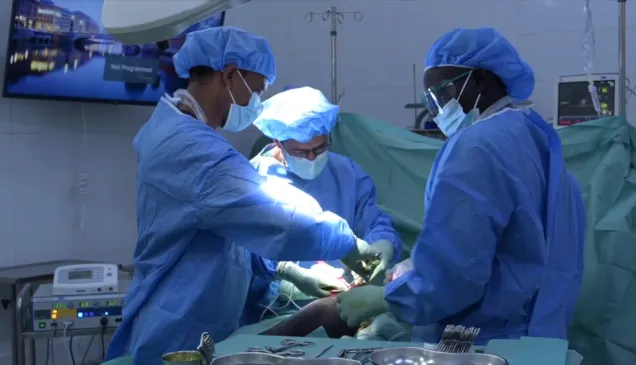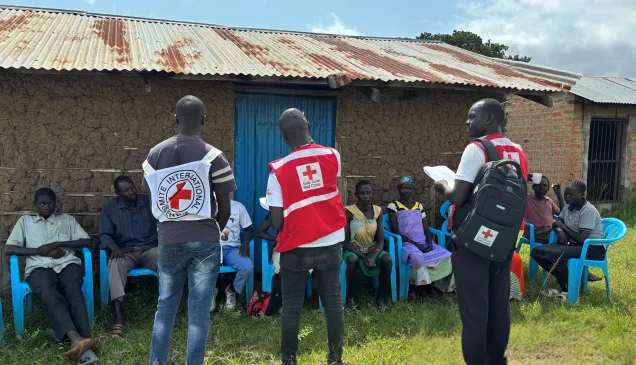Wishing for life in South Sudan to return to normal
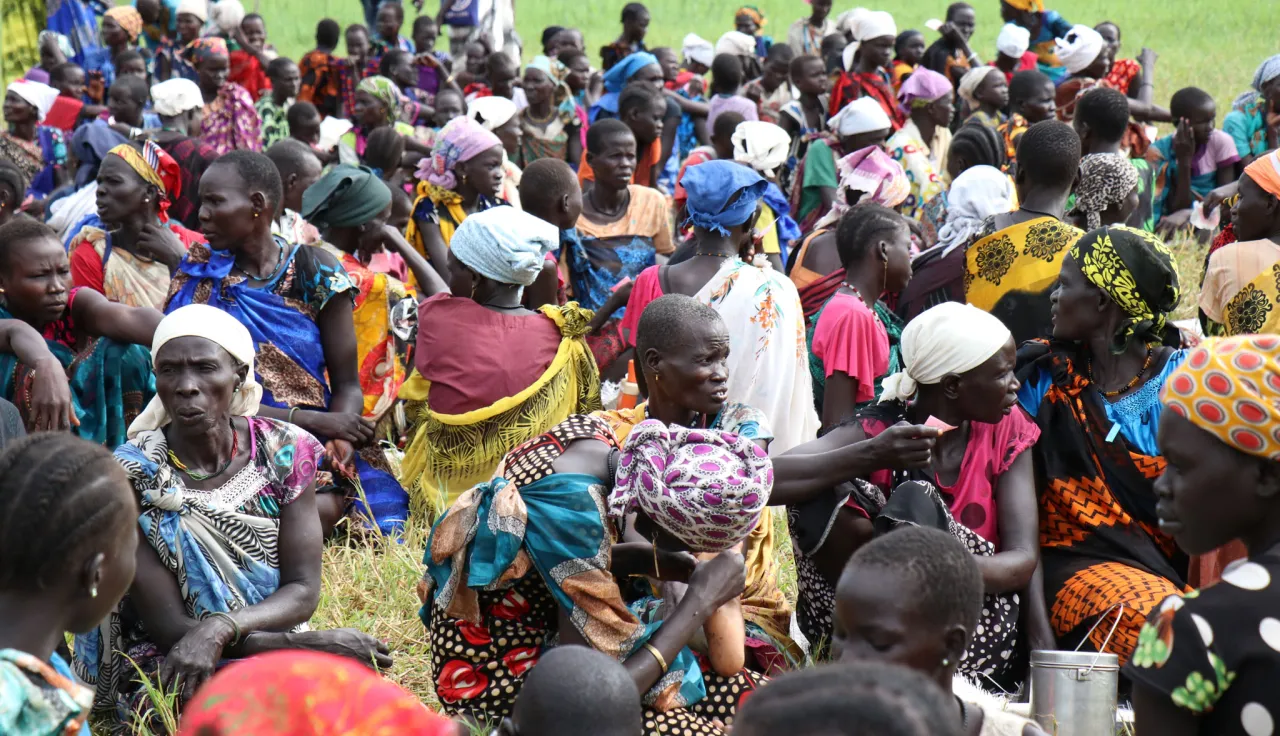
By Erika Tovar Gonzalez, Media Delegate, ICRC South Sudan
JUBA, South Sudan—The landscape below is a collage of blue and green, rivers bleeding into swamps. It is hard to imagine how people could have survived here for the last three months after clashes made it impossible for humanitarian organizations to reach them. Security is an ever-present concern in South Sudan. We had to wait until the community and our team from the International Committee of the Red Cross could meet in safe conditions.
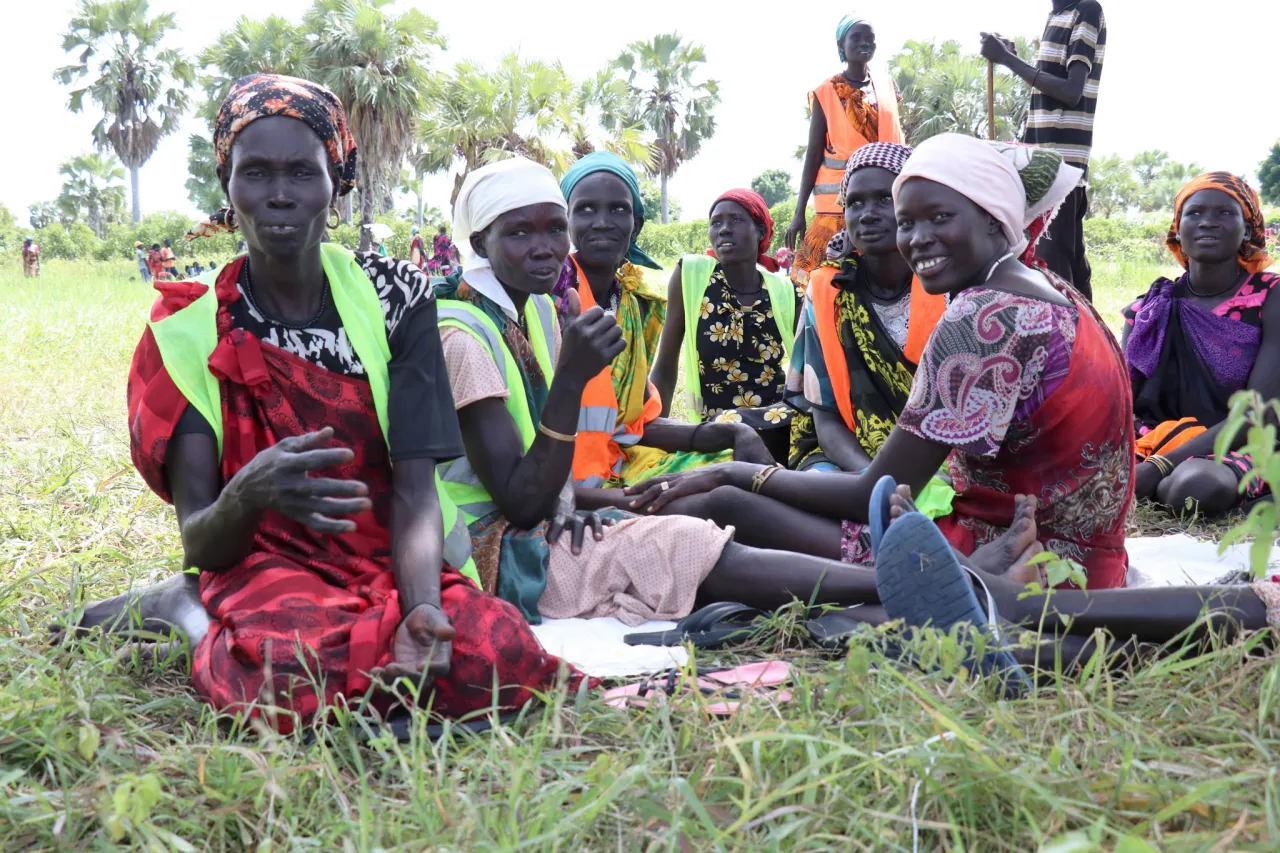
We arrive as thousands of people gather. They have come from six different villages to receive food and shelter materials. Many of them have lost everything several times since the conflict started five years ago.
"We don't have anything. I lost my football and my clothes," a 14-year-old boy tells me.
I ask what he has been wearing for the last three months, since the last clashes.
"This," he answered, pointing to his t-shirt.
Like him, most of the kids sleep and live with just that, a t-shirt or a single dress after their belongings were stolen or burnt along with their houses.
"Did you lose anyone close to you?" I ask.
"Yes, my uncle. He was the closest person I had after my father was killed (two years before). I was running with him when he was shot."
His story, tragically, is not unique.

I come across a man getting ready to help with the distribution: "What have you been eating?" I ask him.
"Whatever we can find. We don't think about it," he answers.
"Can you find fish in the river?" (Two hours away, which can pose a security risk)
"Sometimes, but we don't have fishing kits. It's difficult to fish without them," he replies.
"Do you farm?" I ask.
"Our farming tools were stolen along with the fishnets," he responds.
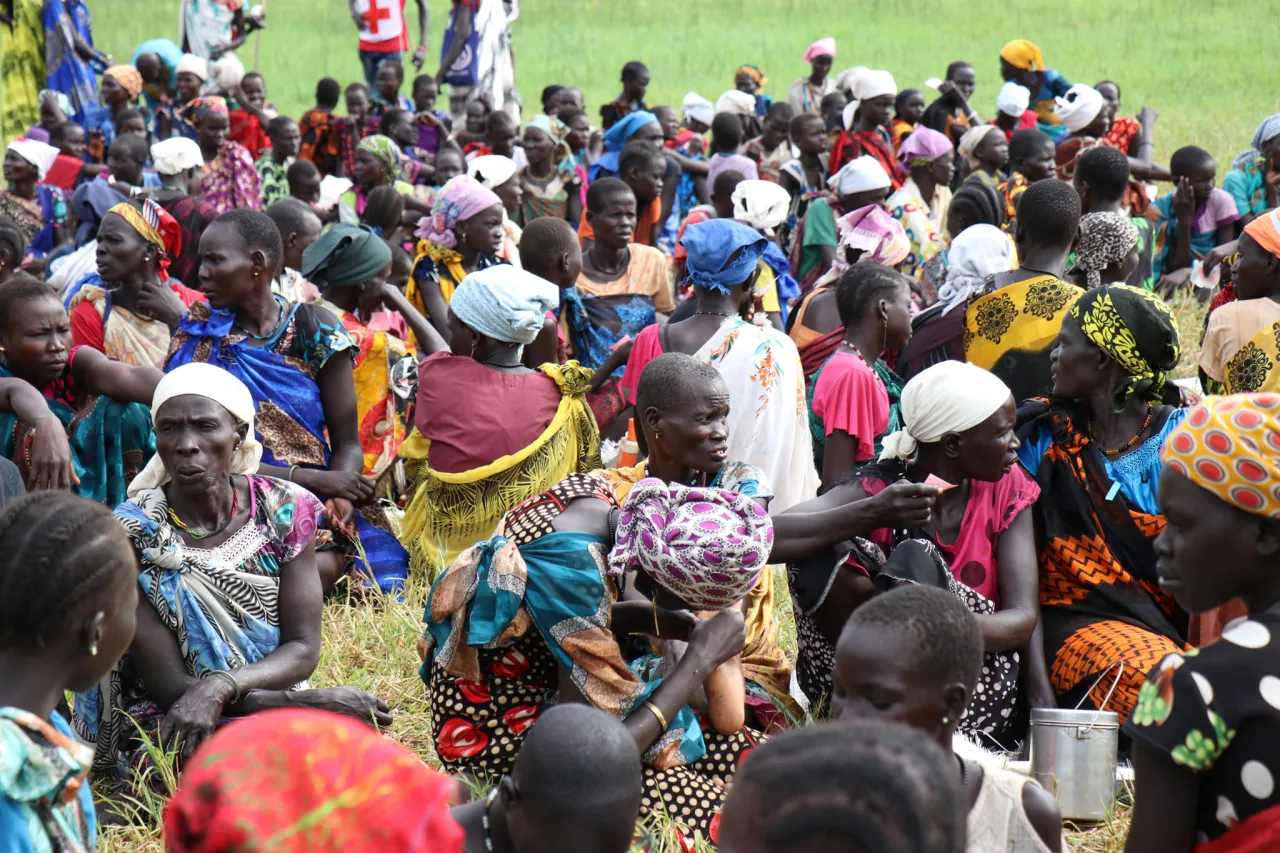
Families have lost what they had including their animals, crops, and stored food. This has made it extremely difficult for them to have enough to eat. This has happened many times over: hunger is a grinding reality for millions of South Sudanese. Without assistance, it is clear how people could slide into a severe situation.

Relief from the sky
Today, we will do three rounds of distributions by air. Each bag weighs 50 kilograms and is dropped from 200 meters high. Some community members are tasked with keeping people safely out of the drop zone, while others organize the bags by content—sorghum, rice, beans, salt, sugar, and tarpaulins.
Everybody is helping, kids are excited, and women are busy splitting the food and organizing the bags to make them lighter to carry. Some will walk for an entire day, even more, to reach home. They need to stay here overnight, sheltering under trees so they can start their long journey back at dawn.
People living in houses near the drop zone charge a small amount of food to hold onto people's rations until they are able to return and carry the rest of it home.
Not many men to help
More than 30,000 people are receiving the assistance, yet only a few dozen men are at the distribution.
"Men fight back. That is why they are targeted during attacks. Meanwhile, women grab what they can and flee with the kids. That's how they end up being separated," a community leader tells me.
Some men have been killed, while others have gone missing and some fled, never to come back.
Close to 200 satellite phone calls are being made daily by women and children during these distributions. ICRC is providing the service to help families to communicate with their relatives.
There are no communication networks in the area.

A life on the run
During this five-year conflict, around 2.5 million South Sudanese have become refugees, while 1.5 million have been internally displaced, according to various reports. That is more than a third of the population (12 million) of South Sudan.
In some communities, like this one we are visiting, families flee during clashes and later return. They have also received families from the surrounding villages. Even though they have gone through several confrontations, being surrounded by water is considered an advantage to escape: they can hide for days in the water or cross swamps where they won't be chased.
I meet a woman who looks to be in her early 20s, who sought refuge in this area six months ago.
"Our village was attacked," she says. "We went to another village, but they followed us, so we came here after crossing some swamps."
I ask how they have survived all this time with no outside assistance.
"We don't have land. We lost everything. We forage for fruits, roots, and sometimes we walk to a (displacement) camp to get assistance."
Her children have been out of school this year because of the attacks. All the school supplies were stolen and frequent clashes do not allow classes to continue. One of the children tells me he wants to be a doctor to help his community. When every day is a struggle to survive, education slips away to a dream.

Families often end up torn apart, with everyone fleeing in different directions to escape an oncoming attack.
"Kids are separated from their families on the run: they get lost, run different ways, or are abducted," a community leader tells me.
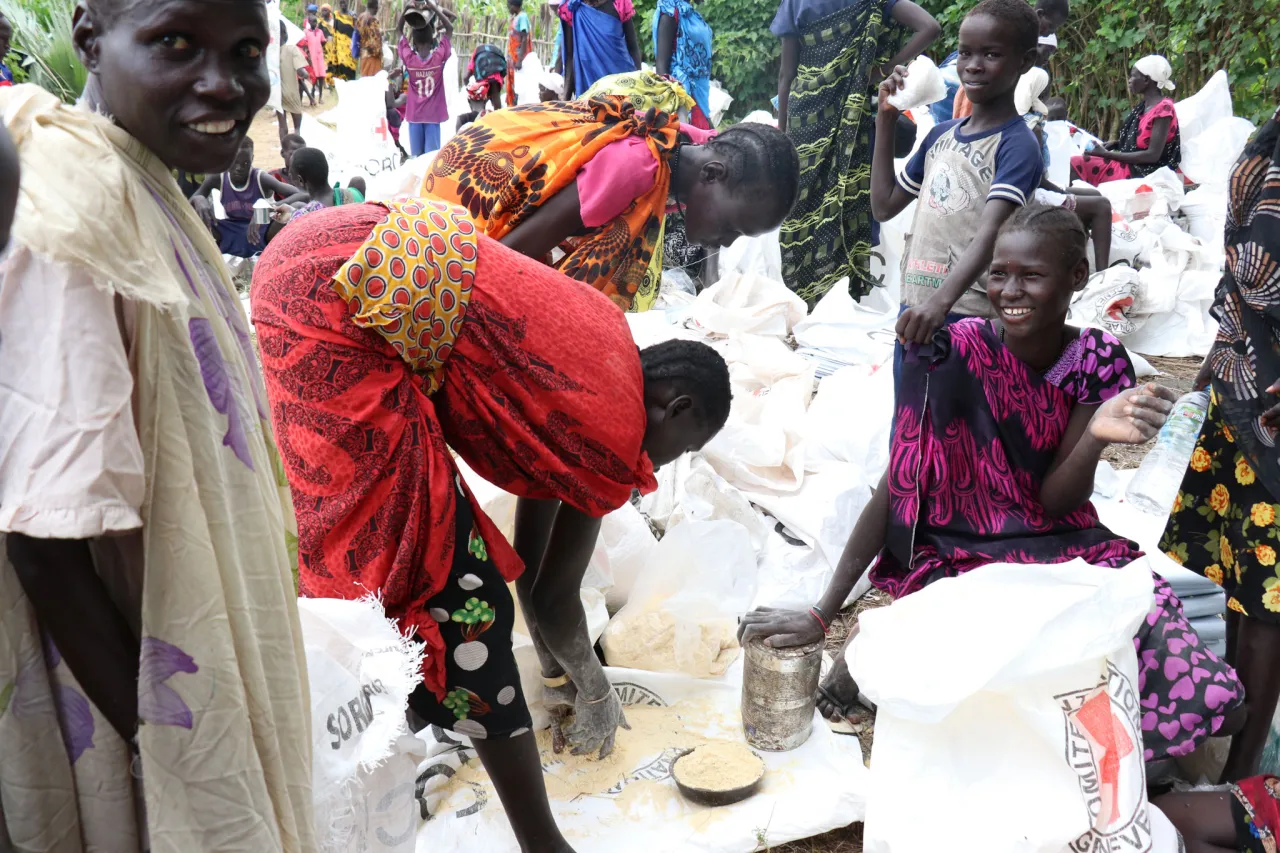
In total it takes us three weeks to complete the distribution. The community has been close to us. We have been close to them. Dozens of kids come by each day to play, show off, and see the photos I take of them. They deserve a better future than what has been given—one without burnt homes, hunger, and suffering. Where schools are open and dreams of becoming doctors are within reach.
One woman I met said she lost track of how many times she had to abandon everything to escape incoming attacks. I asked her what her greatest wish was:
"If life goes back to normal—if peace is coming—everything will be ok. We will stay home without running into the bush. We will not suffer from hunger or suffer for food. You will get what you need at home. This is what we need."


